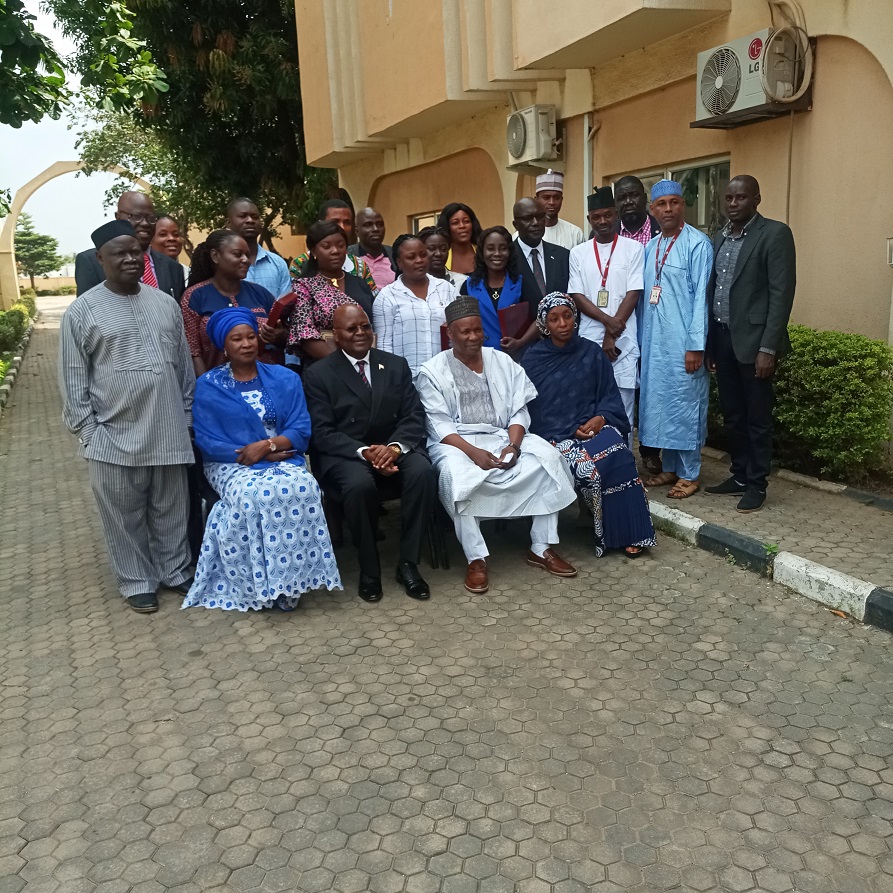-Nigeria’s Anti-Graft Chief Tells LACC Personnel
Abuja-The Executive Chairman of Nigeria’s Economic and Financial Crimes Commission (EFCC), Ibrahim Magu has urged 10 personnel of the Liberia Anti-Corruption Agency (LACC) to combine the fear of God and patriotism to fight corruption in Liberia.
The EFCC head gave the advice to the LACC personnel during the closing ceremony of a two-week capacity building program held for them, a release from the Liberian Embassy in Abuja says.
According to the release, the training program was held at the EFCC Training Center in Karu, outside Abuja, from November 12-22, 2019.
The training’s objective was to enhance the investigative capacity of the LACC staff and provide a platform for the observation of judicial proceedings related to anti-corruption cases, the release adds.
Chairman Magu, who spoke through Dr. Aminu Gusau, the EFCC Director for Organizational Support, said, “You will have to be prepared and see how best you can fight corruption. You will have to use the fear of God and combine it with patriotism to defeat the monster of corruption.”
He cautioned the Liberian trainees that by not taking their training serious would mean a betrayal of the trust: “…betrayal of trust in the sense that you’re not being patriotic as Liberians and by extension you’re not even being patriotic to the continent of Africa.”
For his part, Ambassador Al-Hassan Conteh, on behalf of President George M. Weah, congratulated President Muhammadu Buhari for granting the Liberian Leader’s request for a bilateral partnership program between the LACC and EFCC in capacity development, technical assistance and information exchange.
The Liberian Ambassador said the Government of President Weah believes that that corruption constitutes a major impediment to national development: “It erodes faith in government because of mismanagement and misapplication of public resources. It weakens accountability, transparency and justice. Corruption shortchanges and undermines key decision and policy-making processes. It stifles private investments which create jobs and assure support from donors”, he noted.
Ambassador Conteh also thanked Chairman Magu for collaborating with his counterpart, Commissioner Charles Gibson, the then Acting Chairman of LACC, for “”acting expeditiously in concretizing this capacity building program”, which he said is central to Liberia’s current development plan, the Pro-poor Agenda for Development and Prosperity (PAPD).
Also making remarks, the Commandant of the EFCC Training Academy, Professor Ladi Hamalai, urged the LACC personnel to go back home and engage the civil society organizations to ensure prevention which is a very important component of curbing corruption.
Isaac Davies, head of the LACC trainees, expressed gratitude to the Government and people of Nigeria for affording them the opportunity to build their investigative capacity: “These lessons have been insightful, challenging, and reaffirming. They have energized us to renew our commitment to ensure better stewardship of our nation’s resources. We look forward to replicating the things we have learned and observed here, sharing these skills with our colleagues and applying them to our daily work.”
The LACC trainees included Abraham B. Sheriff, Deputy for Intelligence/Enforcement Division, Isaac Davies, Internal Auditor, Attorney Margaret Nigba, Legal Officer and Rebecca Kiawoin, Procurement Officer.
Others were Patricia Barnaby, Assistant Asset Declaration Officer, Bernice W. Karlar, Asset Management Assistant, Vivian Blamah and investigators Emmauel Tarlue, Sonja Gibson and Rahoff Solomon, the release concludes.

